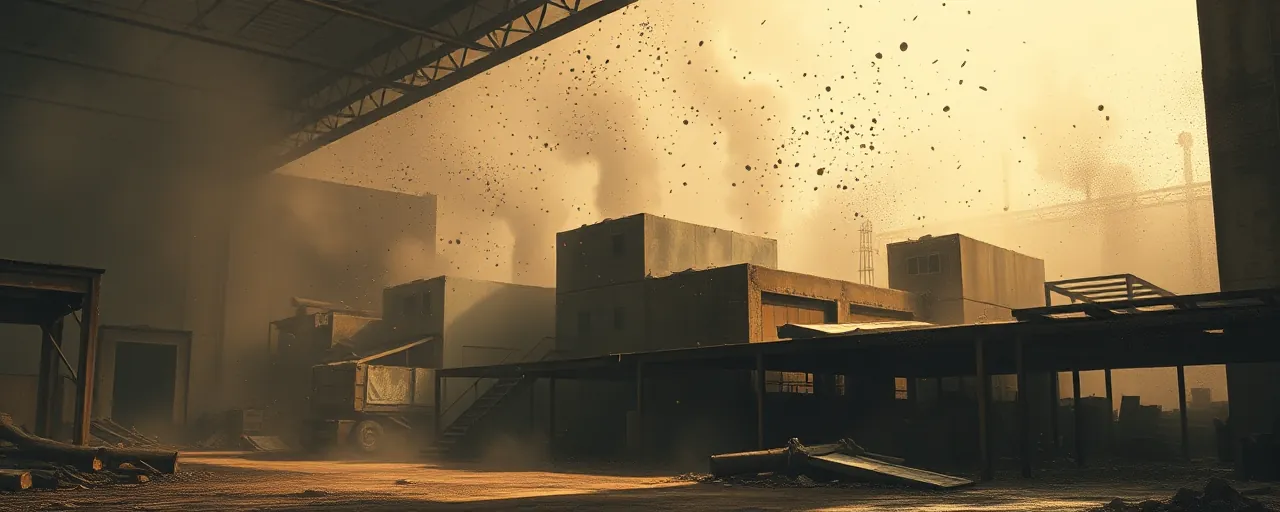A Blaze of Negligence
When flames erupted at BioLab Inc.’s Conyers warehouse, the fallout wasn’t just smoke and ash; it was a glaring signal of corporate indifference. The U.S. Department of Labor’s investigation pinned the disaster on improperly stored hazardous chemicals, a failure that turned a routine facility into a ticking time bomb. This wasn’t an act of God; it was a preventable catastrophe born from cutting corners. Now, with the Occupational Safety and Health Administration slapping BioLab with over $61,000 in penalties, the message is clear: accountability isn’t optional. For too long, companies have gambled with worker lives and community safety, and it’s time that gamble stopped paying off.
The stakes here are real, not abstract. Toxic plumes don’t care about balance sheets; they choke neighborhoods, shutter businesses, and leave families scrambling. BioLab’s six violations, four of them serious, expose a pattern of neglect that demands a response. OSHA’s action isn’t about bureaucracy; it’s about forcing companies to face the music. With chemical warehouse fires plaguing industries nationwide, from Georgia to beyond, the question isn’t whether we need tougher enforcement; it’s how anyone could argue against it when the evidence keeps burning bright.
Penalties That Pack a Punch
OSHA’s $61,473 fine might sound steep to some, but it’s a drop in the bucket compared to the chaos BioLab unleashed. Adjusted for 2025’s 2.6% penalty hike, serious violations now hit $16,550 each, while willful ones soar to $165,514. That’s not petty cash; it’s a wake-up call. Companies like BioLab don’t blink at safety upgrades when the cost of failure stings harder. Historical data backs this up; since OSHA ramped up fines decades ago, compliance rates have climbed, slashing workplace injuries. The math is simple: a $61,000 penalty today beats the millions in lawsuits, lost production, and ruined reputations tomorrow.
Critics might whine that hefty fines cripple businesses, but that’s a tired excuse. Smart firms know investing in safety, from proper storage cabinets to real-time monitoring, pays off. Reduced insurance premiums, fewer accidents, and smoother operations prove it. BioLab’s mess shows what happens when you skimp; the fire didn’t just torch their warehouse, it torched their credibility. OSHA’s not the villain here; it’s the last line of defense against a mindset that treats workers like expendable assets.
The Human Cost of Cutting Corners
Behind every chemical spill or warehouse blaze lies a human toll that no spreadsheet can erase. Hazardous chemical exposure isn’t a hypothetical; it’s skin burns, lung damage, and cancers that haunt workers years after the smoke clears. Studies tie prolonged exposure above 10 parts per million to skyrocketing respiratory risks, and BioLab’s sloppy storage likely pushed those limits. This isn’t about coddling employees; it’s about basic decency. Employers have a duty to keep their people safe, not roll the dice with their lives.
Some argue for lighter regulations, claiming businesses need ‘flexibility’ to thrive. Tell that to the Conyers families evacuated as toxic clouds loomed. Flexibility didn’t stop this fire; it fueled it. OSHA’s rules, like segregating incompatible chemicals and mandating ventilation, aren’t red tape; they’re lifelines. The agency’s free consultation programs even hand firms the tools to comply without breaking the bank. BioLab had every chance to get it right and blew it. That’s not a case for less oversight; it’s a neon sign screaming for more.
Prevention Beats Disaster
Fires like BioLab’s don’t have to happen. Advanced detection systems, automatic sprinklers, and oxygen reduction tech can snuff out risks before they ignite. Regular inspections catch faulty wiring, and training stops human error cold. These aren’t pie-in-the-sky fixes; they’re proven strategies that save lives and livelihoods. Over 270 chemical incidents rocked the U.S. in 2023 alone, and each one screamed the same lesson: proactive beats reactive every time. BioLab’s failure to embrace these tools didn’t just cost them; it cost everyone around them.
The naysayers will cry about costs, but they’re missing the forest for the trees. A fire-resistant wall or a decent ventilator is cheaper than rebuilding a gutted facility. OSHA’s compliance assistance, offered free to qualifying businesses, lays out the playbook: audits, training, monitoring. Companies that lean in don’t just dodge fines; they build trust and stability. BioLab’s reckoning proves that ignoring the playbook doesn’t end well. It’s not about punishing business; it’s about pushing them to be better.
A Line in the Sand
BioLab’s fire isn’t an isolated fluke; it’s a symptom of a broader rot that OSHA’s fighting to root out. The agency’s not perfect, but its mission, to hold employers accountable and protect workers, is non-negotiable. With penalties in hand and resources on offer, OSHA’s drawing a line: comply or pay up. That’s not overreach; that’s justice. The Conyers disaster laid bare what’s at stake, jobs, homes, health, and it’s a price too steep to keep paying.
This isn’t about drowning companies in rules; it’s about demanding they rise to the occasion. BioLab has 15 days to act, comply, confer, or contest. They’d be wise to take the hint and fix what’s broken. America’s workers deserve workplaces that don’t double as death traps, and communities shouldn’t live in fear of the next plume. OSHA’s hammer fell hard on BioLab, and it needs to keep swinging. Anything less lets negligence win, and that’s a loss we can’t afford.
